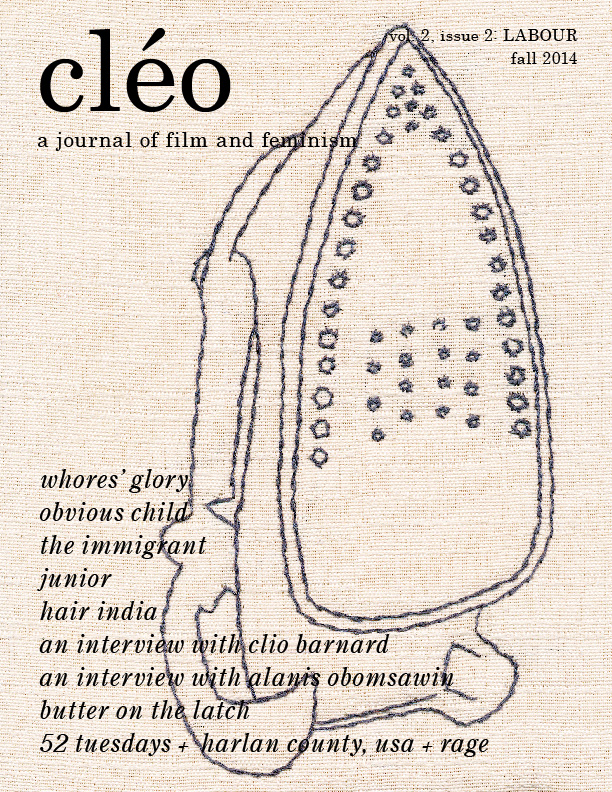

“50 bucks, grandpa, for 75, the wife can watch.” – Kit De Luca
This line from Pretty Woman (1990) was always dubbed over when shown on cable television, and the playful negotiations of Kit De Luca (Laura San Giacomo) — the coke addicted but loveable prostitute and mentor to main character Vivian (Julia Roberts) — with a wealthy couple gawking at her short skirt and high boots in the lobby of the Beverley Wilshire Hotel were replaced with either silence or a snide comment about the aforementioned wife’s floral print dress. Kit’s announcement of the wage she charges for her professional services (and its fluctuation, depending on the client’s inclinations) must have been deemed too crass for a film…about sex work? Yet, as anyone who has seen Pretty Woman knows, the film is not at all about the wages and labour of prostitution, but about the velvet box magic and Rodeo Drive accoutrements of falling in love. We at cléo are more interested in the former.
Let’s talk labour.
Be it work’s negotiations, exploitations or pleasures; the often unseen labour of domestic work and parenthood; or the revolutionary toiling of activists, we are wondering what renders certain forms of labour “worth” talking about? The term “labour” is broad, and we would like to see writers embrace its expanse by considering the manifold representations of labour onscreen: from pregnancy, birth, or abortion; to collaborative filmmaking and activism (or Hollywood’s re-telling of activist stories, à la Erin Brockovich or Milk); to depictions of slavery; to films that relish the labour that is spared certain subjects (think of the lack of actual work in films like Frances Ha, for example).
Artist’s Statement
Objects in My Life is a series of line-drawn portraits of everyday objects embroidered onto pillowcases. These cushions – to be used for decoration, not display – blend into the space they are placed in, much like the objects depicted do in daily life. The process of translating these simple drawings into thread and fabric is slow and labourious, but the finished product is meant to be as unremarkable and easily overlooked as the subjects themselves.
Melody Krauze is a Toronto-based fibre artist originally from Windsor, Ontario.











© copyright cléo 2013 - 2024 all rights reserved